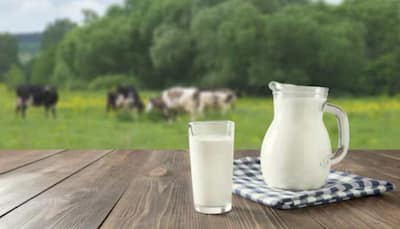A startling case of rabies transmission has emerged in Greater Noida, challenging common misconceptions about the deadly virus. While many assume rabies spreads solely through dog bites, the tragic death of a woman in a rural area of the city highlights a lesser-known but equally hazardous route of infection—drinking milk from an infected animal.
A startling case of rabies transmission has emerged in Greater Noida, challenging common misconceptions about the deadly virus. While many assume rabies spreads solely through dog bites, the tragic death of a woman in a rural area of the city highlights a lesser-known but equally hazardous route of infection—drinking milk from an infected animal.
According to media reports, reveal that the cow had given birth to a calf two months earlier, and its milk was routinely consumed by both the family and other villagers. After the infection was detected, at least ten villagers received post-exposure rabies vaccinations. However, for unknown reasons, the woman did not take the precautionary shot. In the following days, she developed severe rabies symptoms, including an intense fear of water—a characteristic sign of the virus.
She soon began suffering from panic attacks and showed aggressive responses to light and water. In a desperate bid to save her, her family took her to several hospitals, but she was repeatedly denied treatment. Eventually, doctors at the district hospital recommended that they take her home, where she passed away shortly after.
The incident caused widespread alarm in the village, as many had consumed the same contaminated milk. Health officials have since advised villagers to seek prompt medical care if they had any contact with the infected animal.
Rabies is a deadly viral infection that affects the nervous system and can be transmitted through the saliva of an infected animal, not only through bites but also via open wounds or mucous membranes.
Cow’s milk is a dietary staple in many households, consumed by both children and adults. However, concerns about rabies transmission through milk have raised questions about its safety. Although rabies is mainly spread through bites from infected animals, it is essential to take precautions when consuming cow’s milk to safeguard the health of your family.
Rabies is a viral infection that impacts the nervous system of mammals, including cows. It is primarily transmitted through the saliva of infected animals via bites or scratches. Health experts state that rabies is not usually spread through milk, particularly if it has been pasteurized or properly boiled. However, in rare instances, if a cow is infected, the virus may be present in raw, unpasteurized milk.
Stay informed on all the , real-time updates, and follow all the important headlines in and on Zee News.











